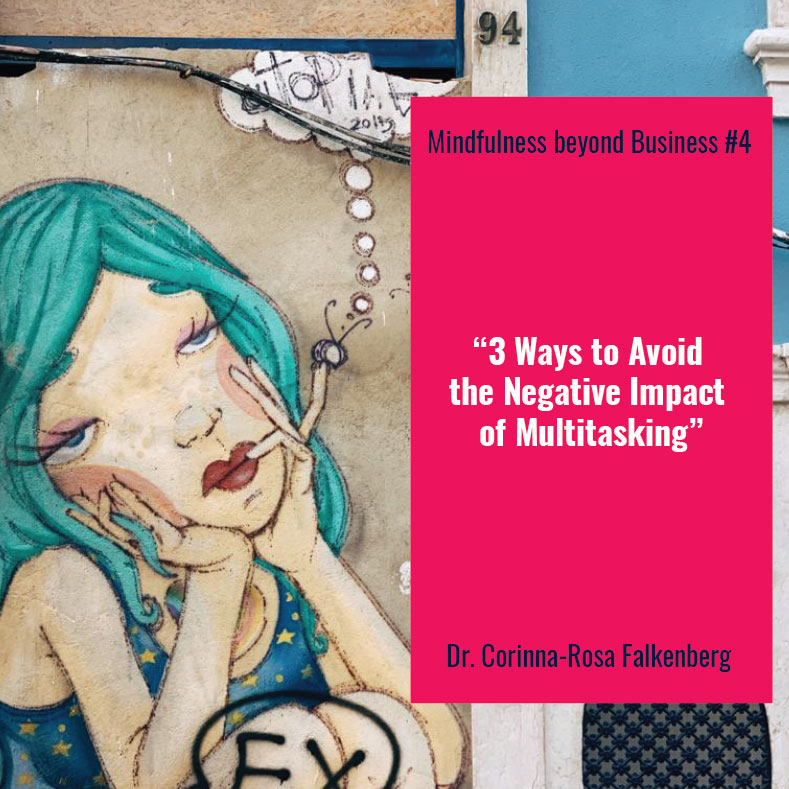☆ Three ways to avoid the negative impact of multitasking
There was a time in my life when I thought, my mind can process and manage all different challenges at the same time perfectly well, I learned in the meantime that multitasking is not always the best thing to do.
Pause right now for a moment and think about all the things you are currently doing right now. Obviously, you are reading this article, but chances are you’re also doing several things at once. Perhaps you’re also having an ongoing virtual meeting, are in the middle of texting a friend, checking your email in another browser tab, or planning your next tasks with one part of your brain. Doing all those activities at once is called “multitasking”.
According to a study conducted at Stanford University, very often, instead of increasing our productivity, multitasking affects our creativity, effectivity, motivation and mood negatively. Based on this research, especially those people who are regularly loaded with a lot of electronic information do even pay less attention, can less control their memory, and are more likely to switch from one task to another.
Here are my 3 ways on how to effectively avoid the possible harmful impact of multitasking:
Limit the number of things you juggle at any given time. Clever combination should be observed in order to avoid the negative effect of multitasking. Be aware that only a combination of these tasks performed simultaneously provide you with the positive aspects of multitasking: a) A few, habitual tasks like running while listening to music b) One task that requires most of your attention plus one habitual task like listening to a podcast while doing maintenance tasks c) One complex task, your most productive task that will require you more time and attention, can only be managed on its own.
Use the “20-minute rule.” Instead of constantly switching between tasks, try to fully devote your attention to one task for 20 minutes before switching to the other. Make use of your smartphone alarm if required.
Become aware of the times when you’re multi-tasking. There’s a good chance you might do it so much that you don’t even notice when you’re doing it. „Mindful beyond business“ is also the key here. The more awareness you have of your own behavior, the better you will be able to decide what kind of stress level you would like your body and mind to expose.
Doing one task at a time may help you to be more productive and it may make each task for you less stressful and simply more enjoyable.
Source: https://news.stanford.edu/news/2009/august24/multitask-research-study-082409.html






